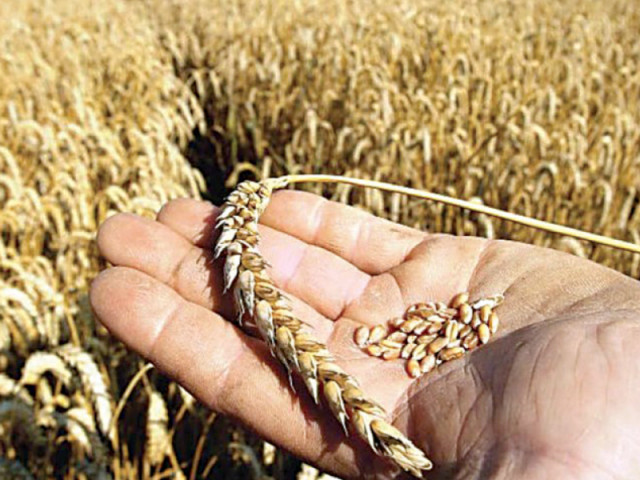Wheat subsidy: Punjab dithers on targeted flour subsidy for poor
Food secretary tells SC the targeted subsidy system not feasible for province.

The Punjab government explained that it is reluctant to develop a new targeted-subsidy system aimed at the poor as it will disrupt the current subsidy regime in place, stated the province’s Food Secretary Muhammad Aslam in a report submitted to the Supreme Court.
A three-judge bench of the Supreme Court, headed by Justice Jawwad S Khawaja, was hearing the suo motu case on Monday on the government’s inability to provide food at cheaper prices.

The Supreme Court had sought flour subsidies throughout the year only aimed at the poor population of Punjab, instead of a general subsidy on wheat. Any abrupt switchover from general to targeted subsidy will have serious implications vis-à-vis the poor, the food secretary maintained.
The finance department has observed that during the current year, the government has already committed a subsidy for the purchased wheat, said the report. “[Therefore,] any additional subsidy beyond the allocated amount may not be possible during the current financial year. The continuance of both the existing and the new system of targeted subsidy would not be sustainable.”
“If we launch a targeted-subsidy programme on the basis of Benazir Income Support Programme (BISP) data compiled in 2011-12 – which consists of around 2.9 million beneficiaries in the Punjab – and pay Rs1,000 per month to each beneficiary, a huge amount of at least Rs34.8 billion per annum will be required in addition to the administrative costs,” Aslam explained in the report.
To provide food security to the common man, the government has already purchased 374,200 metric tons of wheat from growers this year, in addition to the carry-forward stock of 133,000 metric tons, the report said.
For this purpose, the government has raised a loan of Rs205.32 billion at 12% that tentatively includes a subsidy of Rs25 billion.
Due to the distribution of subsidised wheat to flour mills, to maintain the supply of atta at a reasonable rate, the government had to bear the burden of a Rs19.252 billion subsidy till March this year.
The report also mentions that a targeted subsidy of Rs5 billion has already been earmarked for the Ramzan Package 2014 whereby 450,000 metric tons of wheat will be released at a subsidised rate to ensure the provision of cheaper atta.

“The government subsidises that brand of wheat atta, which is consumed mostly by the low-income groups. Other varieties, such as fine, super and other brands that are bought by relatively well-to-do people, are available in the open market at competitive prices. The focus of the government throughout has been to provide that brand of atta, which is consumed by the poor at relatively cheaper and stable rates.”
The Punjab government did not increase the wheat purchase price by the government to keep the price of atta low whereas in other provinces, it was increased from Rs1,200 to Rs1,250 per 40 kg, the food secretary submitted.
Nevertheless, a cabinet committee, headed by provincial law minister Rana Mashood Ahmed Khan, has been constituted to develop a system of targeted subsidy on the Supreme Court’s orders. The chief minister also chaired its meetings and assigned the task to Dr Umar Saif, the Punjab Information Technology chairman, to devise a foolproof and fair strategy, poverty mapping and modalities for the targeted subsidy programme.
The food secretary added in the report that a proposal has been submitted to the chief minister.
However, he reiterated that this is not a feasible option.
Published in The Express Tribune, July 8th, 2014.



















COMMENTS
Comments are moderated and generally will be posted if they are on-topic and not abusive.
For more information, please see our Comments FAQ